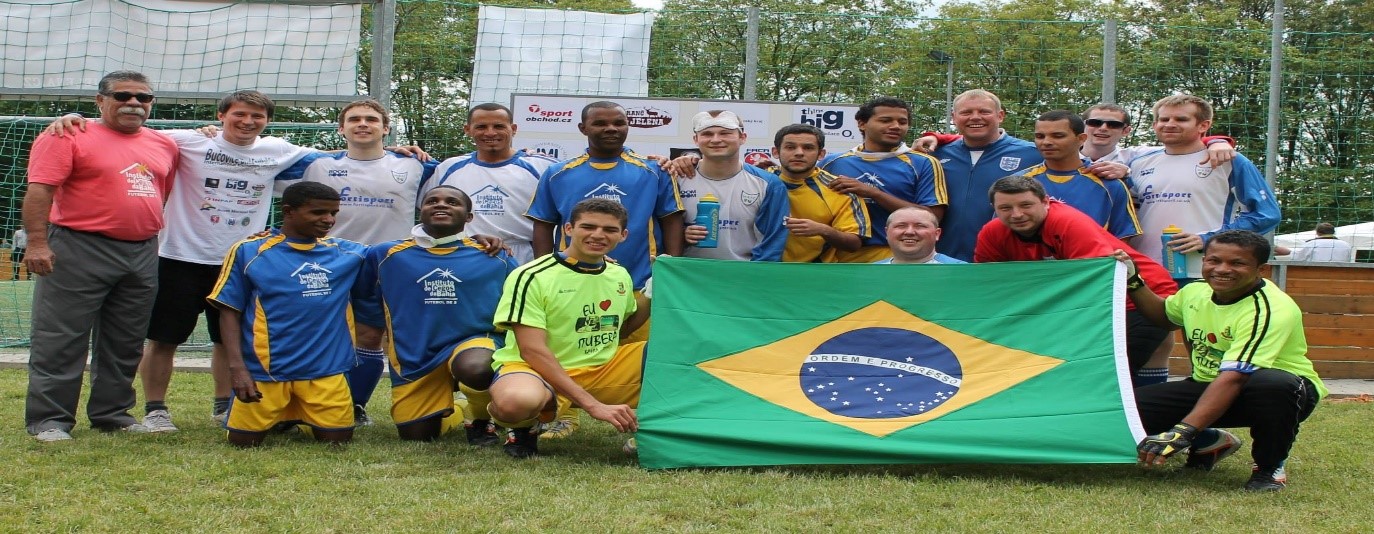Graduate Employment: Increasing Student Employability Through Applied Lifelong Learning
by David Mycock; School of Sport and Exercise Science

This case study demonstrates the innovative and inspiring work I have done as the SSES Course Leader for the BSc. Sports Coaching Science with Disability Sport. It summarises my attempts to increase practical teaching, learning and employment opportunities for students on this study pathway.
Graduate employment is one of the key Teaching Excellence Framework drivers for universities and this driver motivated me to more closely align my teaching activities and learning priorities with developing employability skills and opportunities. Additionally, I wanted to clearly articulate to inquiring students the answer to a question frequently asked; “What job will this course allow me to do”?
The University of Worcester Strategic Plan, Values and Vision, (2019) claims ‘we’ “should be preparing and inspiring students for life through, enriching the students learning experience”. I have found this is best facilitated via implementing, “fun, fairness, equity and inclusion. I do this through providing additional chances to practice what they love doing”. This ensures students become ‘professionalised’ and have the modern ‘currency’ to work in their chosen career as they complete their BSc. Course. To this end, I sought to engage with a number of partners to provide additional qualifications that would enhance student learning and their employability prospects. For example:
- Great Britain Wheelchair Basketball, (Level 1 Wheelchair Basketball Award & Inclusive Zone Basketball Officiating Award).
- Wheel Power UK, (Wheelchair Skills Workshop & Paralympic Boccia Level 2 Awards).
- Goal Ball UK, (Visually Impaired Paralympic Sport)
Students, external verifiers and professors in the field have concurred that this is a positive step to develop and enhance the skills of my students. They have commented; “including industry specific additional qualifications is an innovative and a robust sustainable process for the modern-day student to benefit from”. The benefits, I feel are that students become more confident and better equipped for employability after completing these additional elements to their learning. The real-life learning experiences add purpose and value to their skill set and knowledge. Students claim this, ‘gives them a passport to volunteer and gain paid work in areas they wish to form a career in’.
I have found through these enrichment activities that students have developed in different ways, much more so than I had previously experienced in trying to do everything myself within modules. These opportunities have led to; students automatically stimulating engagement for themselves and others, which promotes their career specific skills and lived experiences. This has expanded career opportunities and students are beginning to develop national and international networks as they improve confidence and self-efficacy.
These mini motivational intra-semester ‘wins’ such as becoming empowered to take control of their own independent learning early, helps students shape and direct their knowledge and practice. The additional qualifications allow for greater ownership and promotes career aspirations and options. I believe this organically enhances their willingness to attend, engage and give extra efforts as a ‘professional student’ to make sure they are in a ‘stronger’ position to obtain their future goals.
Student feedback suggests embedding industry recognised qualifications helps them to keep their learning momentum, which ignites the modules as it enables clear and explicit links between theory and practice. The consensus appears to be that learning ‘in action’ or ‘on the job’ by gaining additional industry recognised qualifications supports students to better learn, succeed both in their studies and, as they prepare for employment. It has amazed me how engaged and stimulated students become when they receive for example; a free t-shirt, an extra industry recognised qualification or an opportunity to go on and ‘actively trial’ jobs they wish to do. Their motivation to learn is significantly increased.
As a consequence of these enrichment activities, one of my graduates gained employment in full time coaching position with, ‘The Albion Foundation’ (TAF). TAF is the Community Programme from West Bromwich Albion Football Club and helps to support 2,000 people in the West Midlands every week. This work has had regional and national impact. Furthermore, this former student now hosts sessions, talks and workshops for current UW students. The benefit of this is that it facilitates continued generation of resources, such as workshops, student placements and paid part and full-time employment. Other students have secured opportunities at Wasps Rugby Club, England Boccia and GB Wheelchair Basketball.
This additional learning strand has promoted a new learning community and this is continually growing and now being facilitated by our ex-Graduates who have now become the next generation of development officers, coaches and teachers. This is a mutually beneficial and sustainable model of good practice now as we have ‘fed the sector’ with well-rounded professionals who return to provide further qualifications, paid and placement opportunities for us.
The holistic real-life learning and teaching approach, which includes employment enrichment activities, has been acknowledged by the Vice Chancellor of UW. Upon reading an article written by one of my students about their BSc. Sports Coaching Science with Disability Sport Course experience and related triumphs, claimed it was, “Simply Inspirational!”
Reference
University of Worcester Strategic Plan, Values and Vision, (2019). Inspired for life, University of Worcester.
